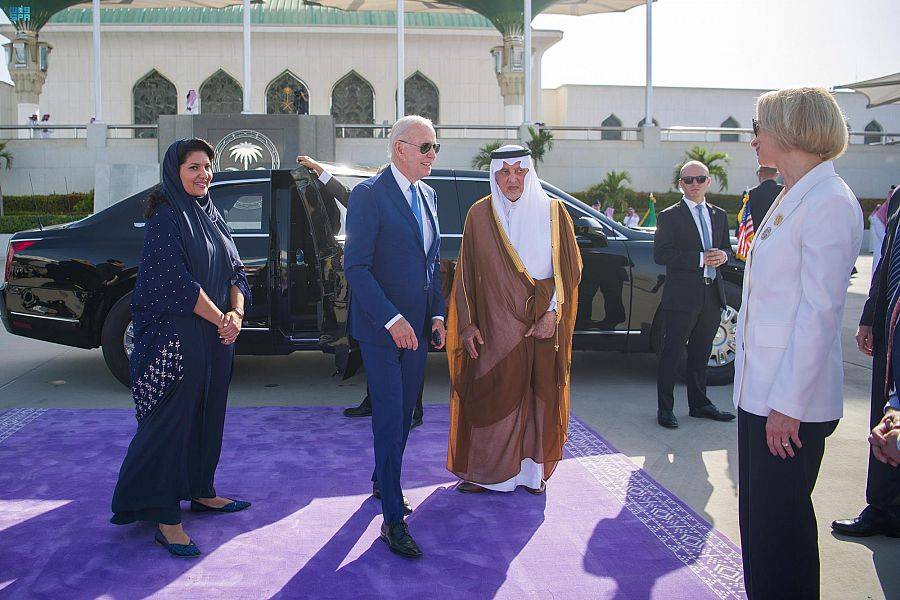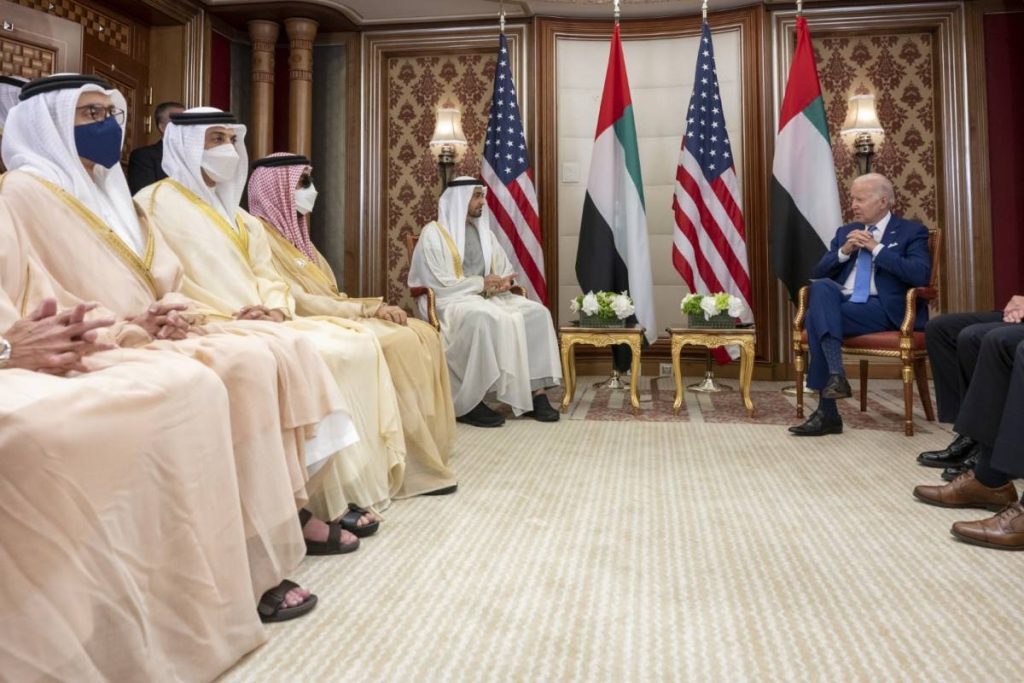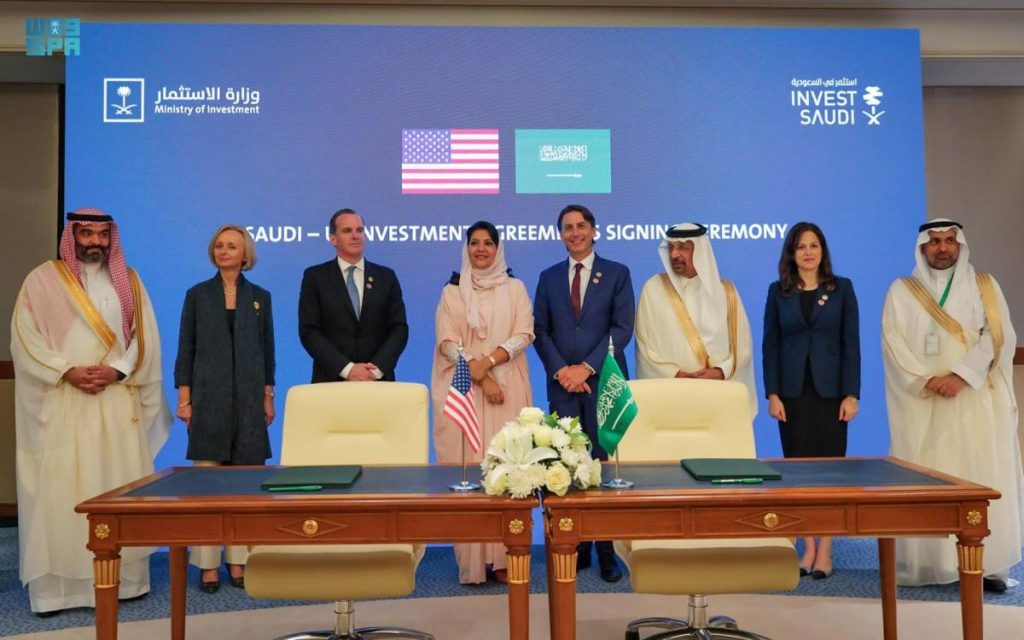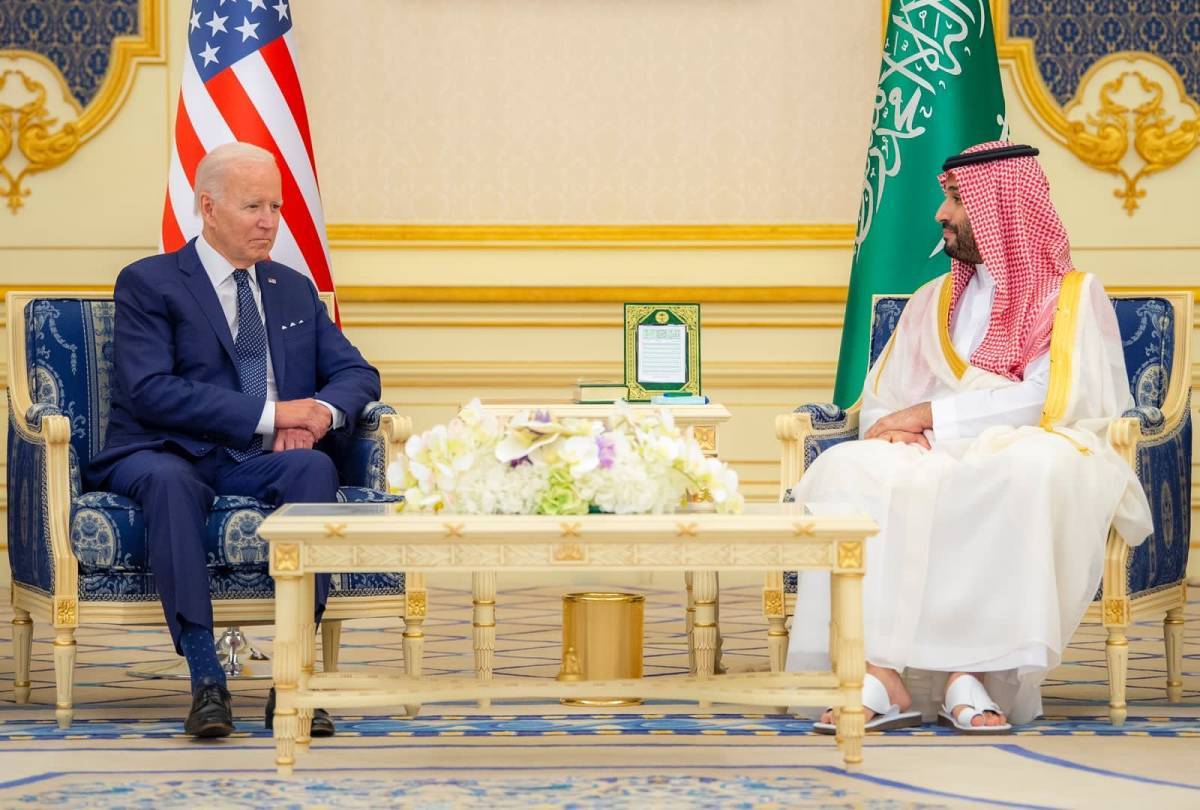The true outcome of Biden’s visit was that the region, and despite its convoluted crises, was no longer on the receiving end of Washington’s instructions. The leaders were developing their own views of the needs and conditions for the region’s geopolitical status and security … writes Osama Al Sharif
Countries that choose to recognize Israel will do so based on their interests and approach to the future of the region. They could, as the UAE had done, join economic partnerships that extend beyond the region such as the I2U2 initiative involving the United States, the UAE, India and Israel.
The US media, on either side of the political divide, have dubbed President Joe Biden’s visit to Saudi Arabia two weeks a failure and for different reasons. For the liberals it was Biden’s reneging on his campaign vow to make Riyadh a political pariah. There he was in Jeddah fist bumping Crown Prince Mohammad bin Salman, one of the most powerful regional leaders, and discussing the future of US presence in the region with him. As for the conservatives, it was Biden’s failure to convince Riyadh and other Arab leaders attending the Jeddah summit to join an open anti-Iran military alliance with Israel as a member.
For US consumers what really mattered was Biden’s inability to get a promise from the Saudis and other GCC countries to increase oil production any time soon and thus drive gasoline prices down.

While the Republicans and the Democrats sparred over the outcome of Biden’s visit, only few pundits were able to understand the true nuances of the president’s Middle Eastern visit. In his remarks in Jeddah, Biden told Arab leaders that the US was not leaving the region or its allies—in his words the US was not about to let Russia and China fill the void left by America’s withdrawal. But what was supposed to be a message of assurance to friends and allies was received with little interest on the part of the regional leaders.
The true outcome of Biden’s visit was that the region, and despite its convoluted crises, was no longer on the receiving end of Washington’s instructions. The leaders were developing their own views of the needs and conditions for the region’s geopolitical status and security.
If the United States wants to come back to the region then it had to understand that the rules of the game had changed. The Arabs, especially in the Gulf, were no longer ready to be part of a US led anti-Russia, anti-China or even anti-Iran alliance for that matter. There is a growing conviction among the leaders that the region is able to chart its own independent foreign policy course that puts its own interests first.
The US is welcomed as an old partner and protector but not as a master. The region has had enough of being part of a tug-of-war where the interests of superpowers trump those of regional ones. This is a major geopolitical shift; one that breaks the bondage of decades of US hegemony.
The Arab leaders meeting in Jeddah sent a message to the White House that they will not be sucked into the vortex of the Ukraine crisis. Yes they denounce the violation of international law and the occupation of sovereign lands but they will not go as far as to blindly side with Washington and the Europeans in their face-off with Russia. And as for Iran, the leaders agreed that Tehran must change its regional behavior and should not be allowed to build a nuclear bomb, but they also extended a hand of friendship to Iran as a neighbor and called on its leaders to engage in meaningful dialogue.
As for the controversial proposal to form a NATO-like military alliance with Israel as member, the leaders brushed it aside. No country would openly join an anti-Iran alliance, especially if Israel is part of it. Relations with Israel remain a sovereign option for countries and that option will not come at the expense of the Palestinian people and their rights. In fact, if the US wants to come back to the region it should have a balanced approach to the region’s conflicts and challenges. It should not view the region from Israel’s point of view only, but also see it through Arab eyes.

Countries that choose to recognize Israel will do so based on their interests and approach to the future of the region. They could, as the UAE had done, join economic partnerships that extend beyond the region such as the I2U2 initiative involving the United States, the UAE, India and Israel.
As to relations with Russia and China, Arab leaders made sure that Biden understands that such ties will be based on mutual and reciprocal benefits and interests. That was made clear by Saudi Arabia’s insistence that any decision regarding oil production will be made through the OPEC Plus, with Russia having a say. Saudi Arabia, the UAE and Kuwait have developed close economic ties with China while they continue their strategic dialogue with Moscow.

It’s a new dawn in intra-regional and inter-regional relations and Arab leaders now realize that they have no interest in being part of a new Cold War. The region has had enough of the politics of polarization and now understands that it has much to give to the world and to its own people without being part of an international bloc or forced to submit as a powerless protectorate.
(Osama Al Sharif is a journalist and political commentator based in Amman.)
ALSO READ-Biden’s Mideast regional tour: It’s all about the agenda
READ MORE-The real story is not Abu Akleh’s murder







